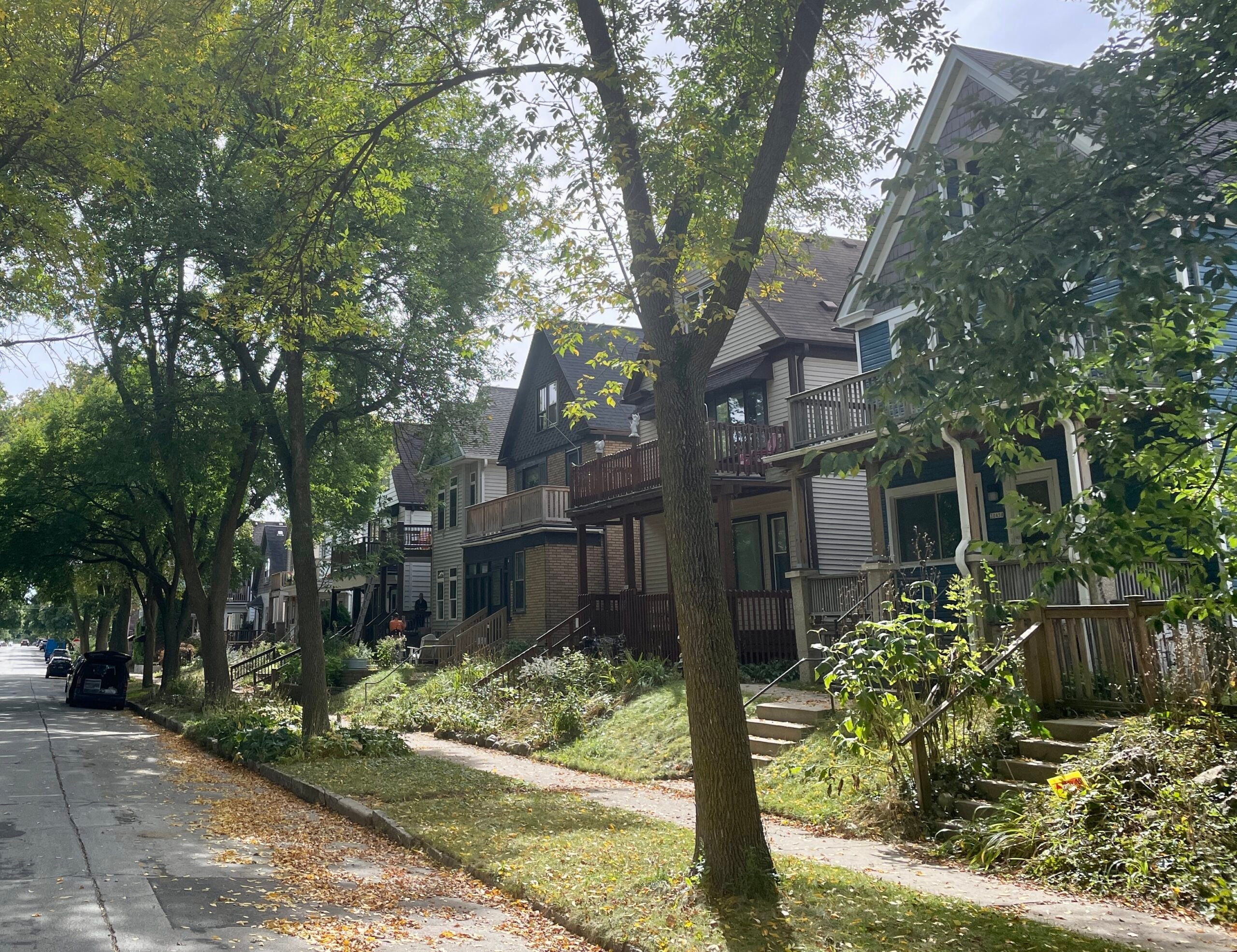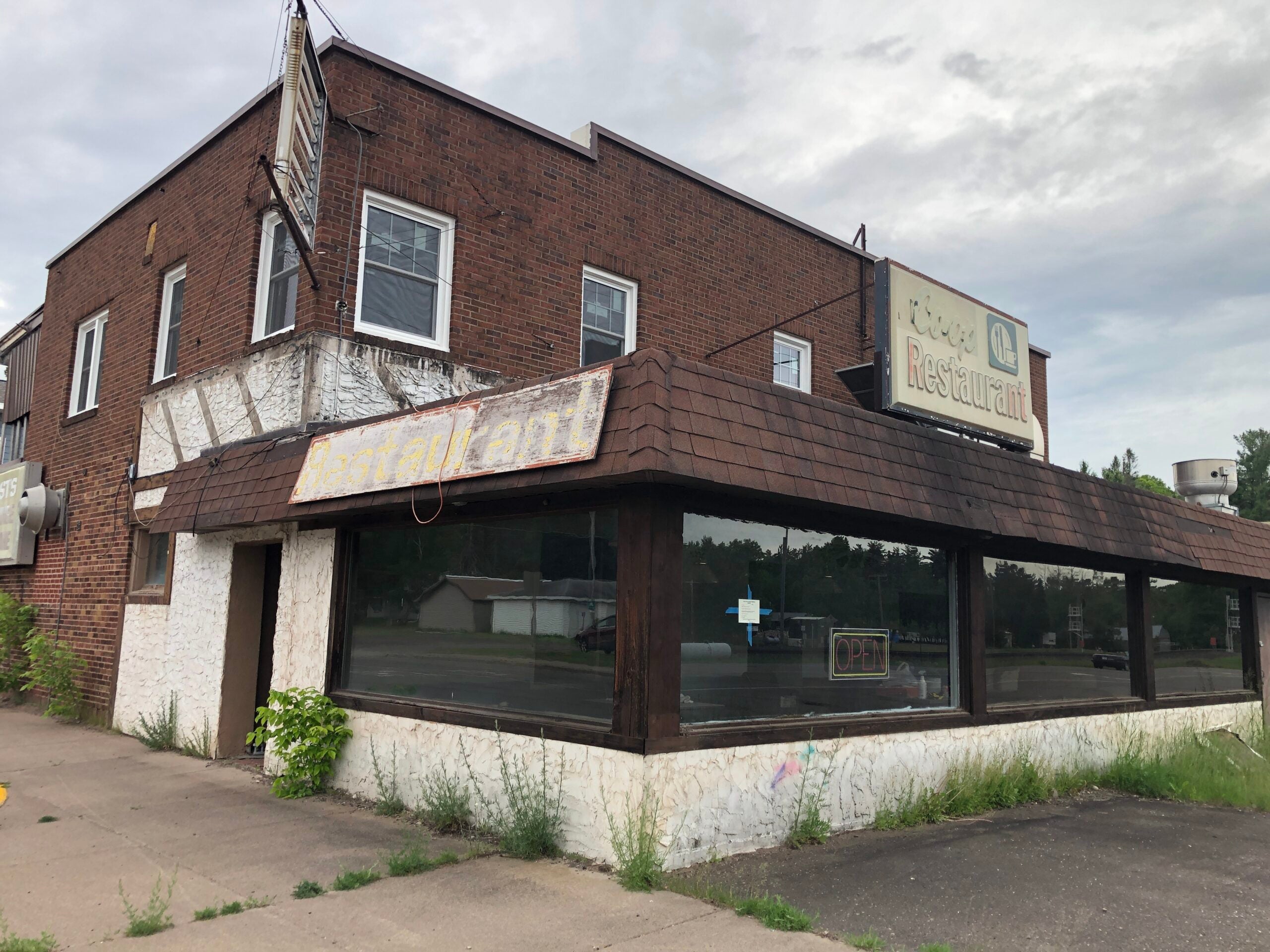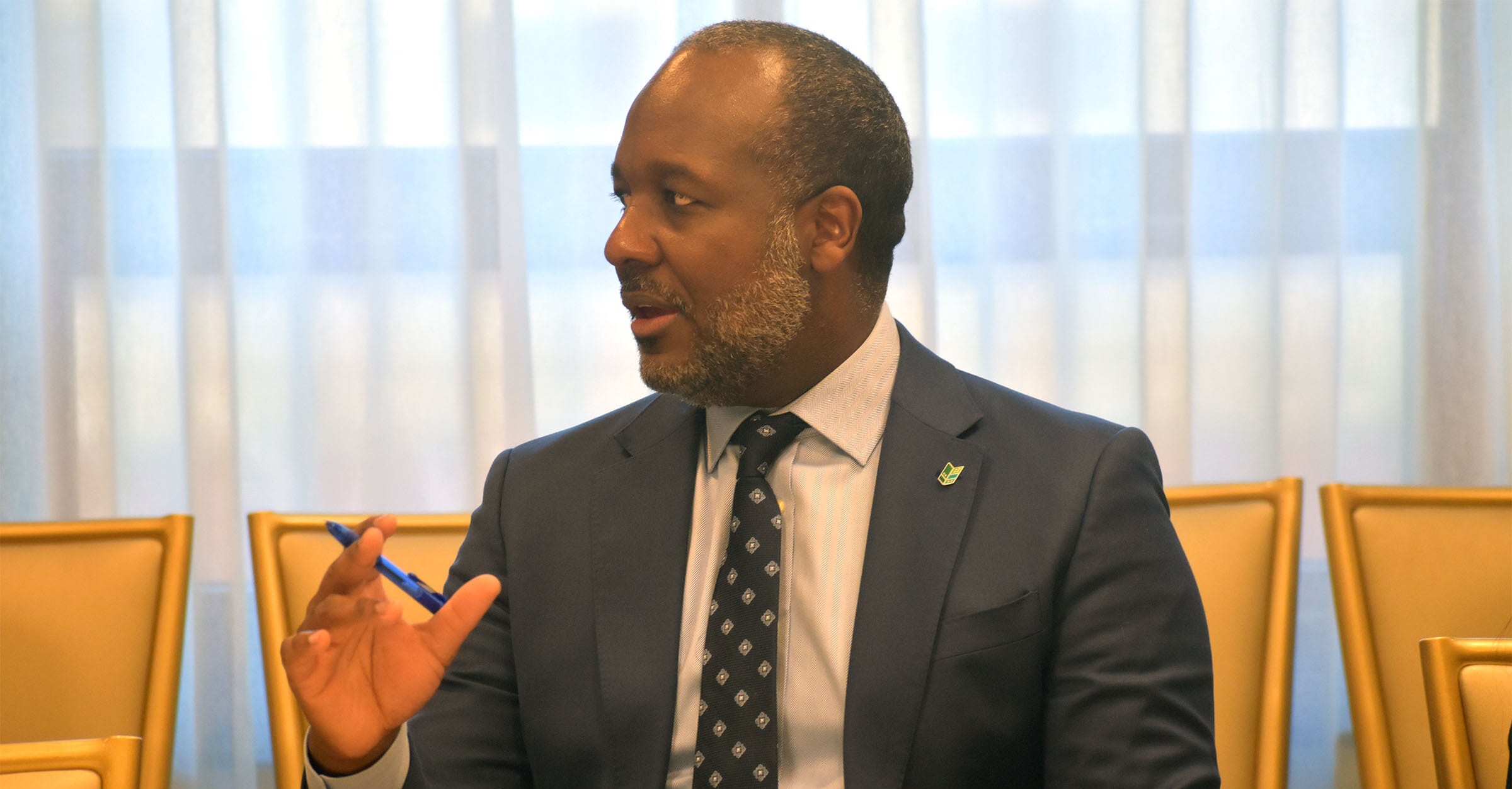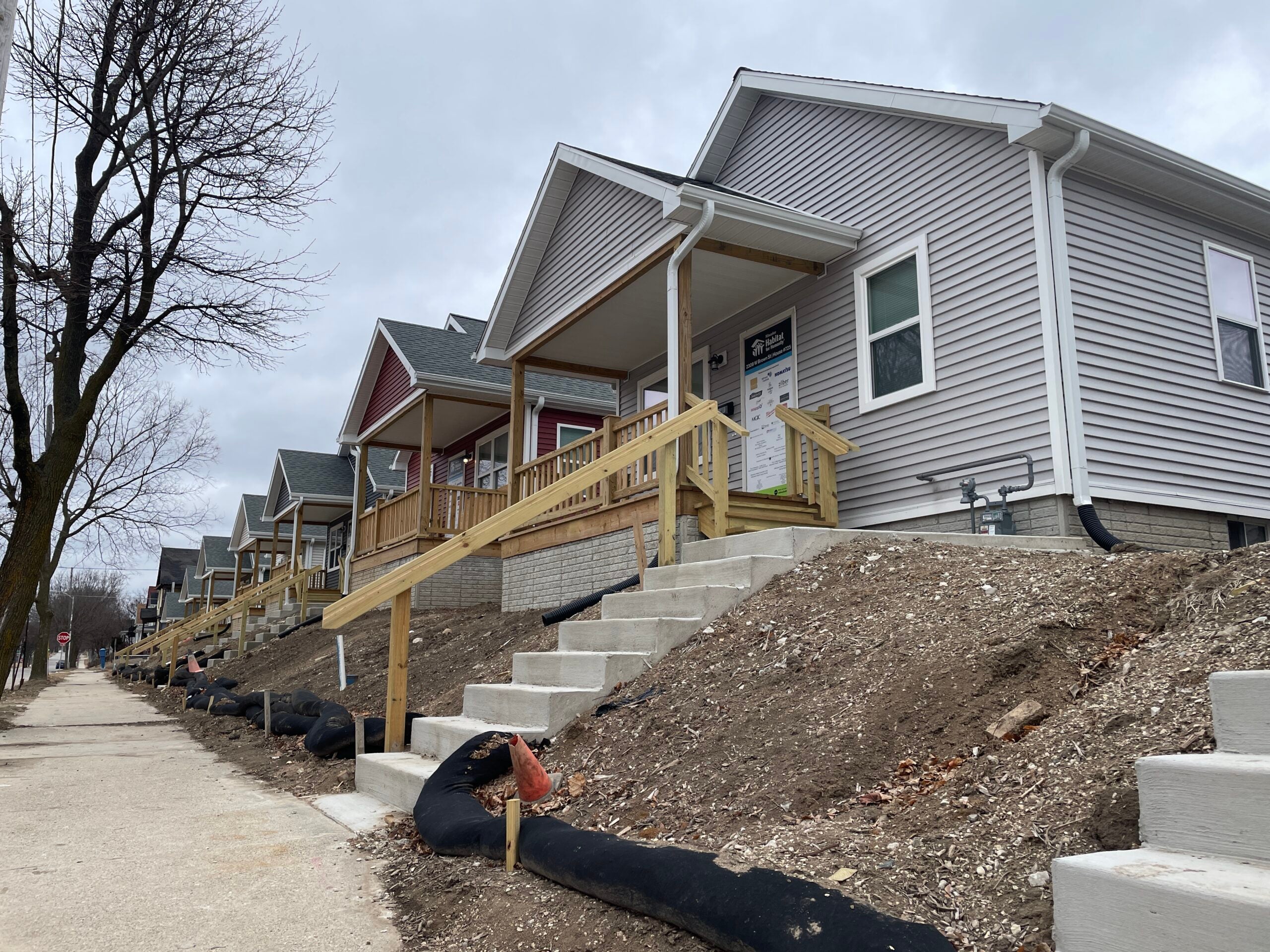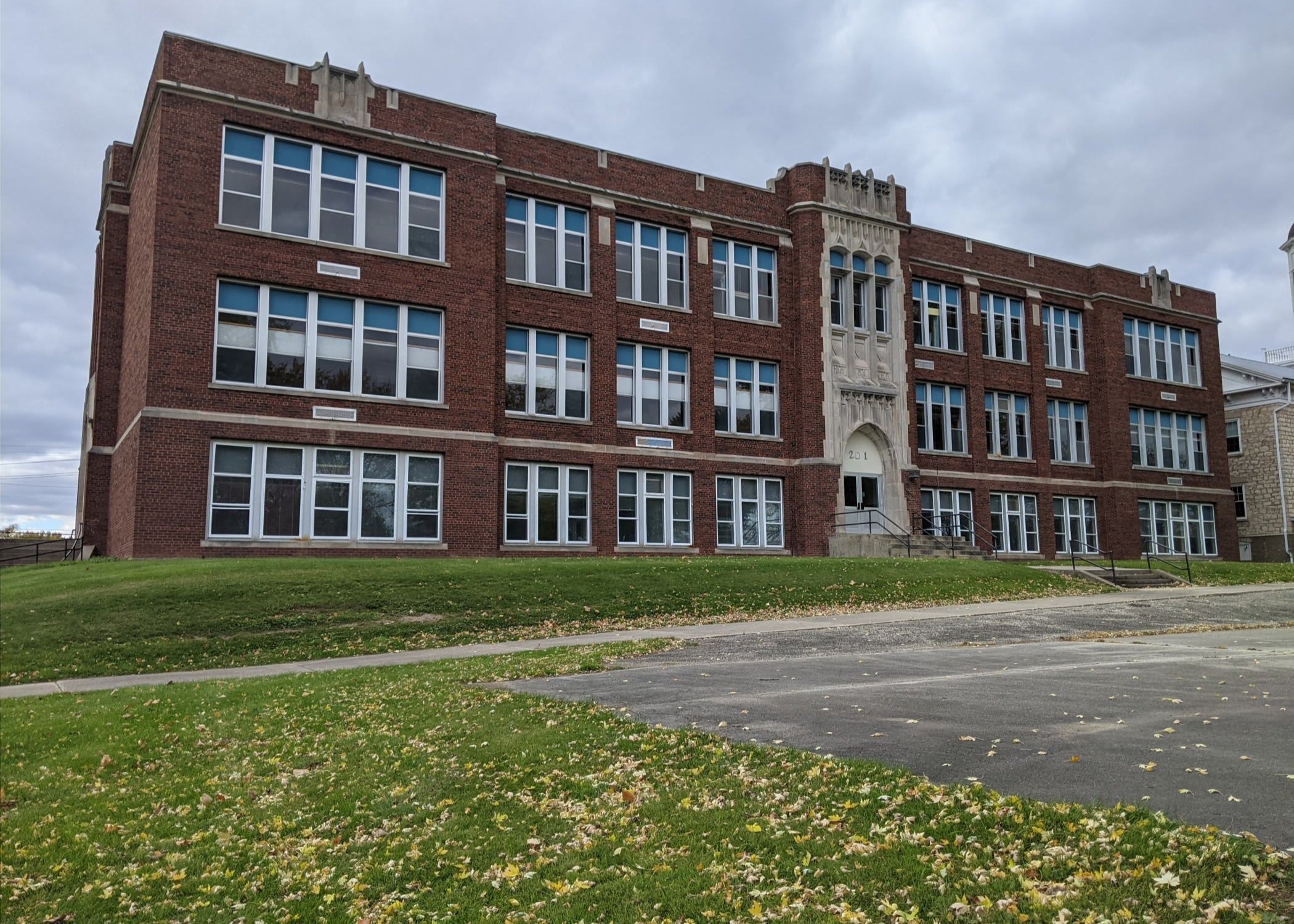Not long after the state announced the new home repair loan program, phones began ringing at a small credit union in La Crosse.
Rhonda Britton, a mortgage loan officer at Governmental Employees Credit Union, said she was “bombarded” with calls after Gov. Tony Evers’ office announced the “More Like Home” Repair and Renew Loan program Wednesday.
“We’ve already this morning taken about 10 phone calls,” Britton said the day after the announcement.
Stay informed on the latest news
Sign up for WPR’s email newsletter.
She said the loans are needed in her community.
“There are a lot of homes in La Crosse County that have been built at least 40 years or older, and with the homes being built over 40 years ago, they usually need quite a few repairs,” she said.
According to data from the U.S. Census’ American Community Survey, the median building in Wisconsin is 50 years old, compared to a national median of 45. In several La Crosse census tracts, the median house was built before 1960.
People who own houses built before 1984 can apply for the More Like Home loans through local banks, like Britton’s employer, the Governmental Employees Credit Union.
The Wisconsin Housing and Economic Development Authority, or WHEDA, is distributing the loans via local banks.
Its CEO, Elmer Moore Jr, said he was “elated” about the program’s launch and Wisconsinites “deserve to live in housing that is safe and warm and comfortable.”
Interest rates on WHEDA loans are low
The $50 million program is financing two types of loans.
One is a 30-year loan for those earning between 100 percent and 140 percent of their county’s median income. It has an interest rate of 3 percent, and must total at least $10,000.
The other is for homeowners who earn less than their county’s median income. It is a zero-interest loan that is forgivable after five years, and can be as low as $5,000.
Both can range up to $50,000, and are meant for single-family houses, condos, duplexes and certain mobile homes.
Britton said, at the moment, non-WHEDA home repair loans otherwise cost GECU’s customers around 6.625 percent in interest, and have to be paid back in only 15 years.
According to the state, the loans are meant for “critical” repairs. These include leaking roofs, broken plumbing or contaminants like mold, lead paint and asbestos. The work must be done by a licensed and insured contractor.
Moore said the program is especially geared toward seniors who are aging in place, given that many earn a fixed income that constrains their ability to pay for repairs, and that things like cold, heat and mold disproportionately affect seniors’ health.
However, he said the More Like Home loans cannot “at this time” be used for accessibility-related renovations like wheelchair ramps or stair lifts.
The $50 million allocation is the final part of 2023’s bipartisan workforce housing legislation to be announced. The legislation’s other programs lend money to developers converting commercial space to housing, rehabbing Main Street apartments located above shops, or building related infrastructure for workforce and senior housing.
Milwaukee Habitat for Humanity wants to join program
Milwaukee Habitat for Humanity administers a Critical Home Repair Loan program, which pays for many of the same repairs as the state’s More Like Home loans.
Most people who receive these loans are seniors, according to CEO Brian Sonderman.
He said common repairs include leaking roofs and electrical work, and said roof repair costs are sometimes above $20,000. The average Social Security benefit paid to retirees in August 2024 was $1,872, or $22,464 in a year.
“We see a lot of financial strain, which leads to a lot of stress on the family itself,” Sonderman said.
He added that many old houses in Milwaukee lack “workable” bathrooms on the first floor, calling it a safety concern for seniors.
According to the Department of Housing and Urban Development, 95 percent of Milwaukee’s single-family houses were built before 1968. Planning documents say that 42 percent of the city’s housing stock predates 1940, and not all of it has seen the necessary investment to remain safe and attractive.
“These are things that we see very regularly, and some of the living situations, frankly, are really distressing,” Sonderman said.
At the moment, his group funds repairs through a combination of grants and zero-interest loans, administered without a bank partner. Families’ incomes determine how much of the total they have to pay back.
Sonderman said Milwaukee Habitat for Humanity is looking to become a WHEDA certified lender. It would allow Habitat to make repairs over their current limit of $25,000.
He also said using the More Like Home forgivable loans instead of Habitat’s loans could decrease the amount of money his group has to spend per project, freeing up funds for other uses, like building more new houses.
“We envision that we’re going to be able to help more families,” Sonderman said.
Moore said the list of More Like Home lenders will continue to grow daily.
“We are absolutely focused on making this available to people across the state, in every community,” he said.
Wisconsin Public Radio, © Copyright 2025, Board of Regents of the University of Wisconsin System and Wisconsin Educational Communications Board.
